Bioidentical Hormone Replacement Therapy in Los Gatos

Dragging yourself out of bed, dreading intimacy, or snapping at people you love isn’t the ‘new you.’ These are signs that your hormones may be out of balance.
At Young Naturopathic Center, we offer Bioidentical Hormone Replacement Therapy (HRT) that’s science-backed and personalized, helping you wake up refreshed, enjoy steady moods, and reconnect with the people who matter most.
Find out what’s really going on inside your body. Book your consultation today, or contact us at 408-761-6781, and take the first step toward a healthier, more confident you.
What is Bioidentical Hormone Replacement Therapy?
Hormones influence your sleep, focus, metabolism, and sex drive. When your hormone levels change due to age, stress, or other factors, you can feel out of sync with yourself. Hormone Replacement Therapy (HRT) is one means of replacing hormones back to normal levels when they are low, particularly during menopause and andropause.
Bioidentical Hormone Replacement Therapy (BHRT) uses plant-based hormones identical to the ones your body produces. This helps your system accept them naturally, restoring balance effectively.
At our menopause treatment clinic in Los Gatos, your treatment is personalized and may include BHRT options such as:
- Estrogen and progesterone
- Testosterone
- Dehydroepiandrosterone (DHEA)
- Thyroid hormones, such as T3 and T4
- Growth Hormone and Oxytocin
Our goal is to support healthy hormone levels for both men and women, and improve overall wellness.
Traditional HRT vs. Bioidentical Hormones
BHRT works with your body, while conventional hormone therapy uses synthetic or animal-derived hormones.
Personalized dosing, ongoing monitoring, and plant-based formulas make BHRT smoother, natural, and easier to tolerate.
Here’s a quick comparison:
Book your BHRT Treatment Today
Are You Experiencing These Hormone Imbalance Symptoms?
You might notice:
- Exhaustion despite rest
- Difficulty sleeping
- Memory lapses or “brain fog”
- Low sex drive or less enjoyment of intimacy
- Mood swings or feeling “off”
Women may experience hot flashes, irregular periods, vaginal dryness, breast tenderness, hair loss, weight gain, or uncontrolled urination
While men may notice erectile dysfunction, hair thinning, reduced muscle mass, lower stamina, weight gain (dad bod or beer belly), or urinary issues.
If these symptoms hit home, it’s not all in your head, and it’s not a part of aging. Hormones may be the cause, and balance can be restored.
Take our quick women’s sexual health self-assessment or men’s sexual health self-assessment to see if your hormones might be affecting you.
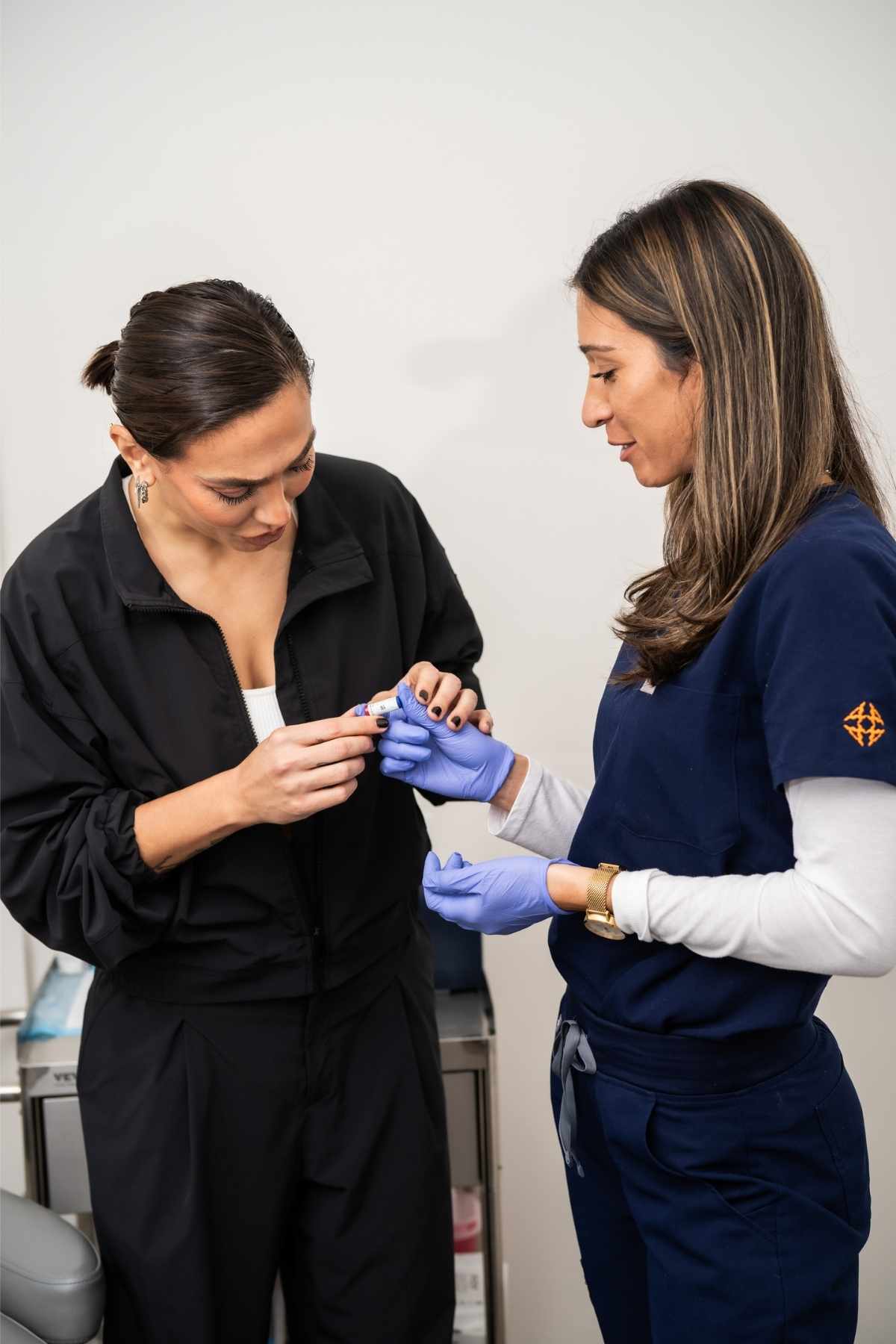
What to Expect at Your First HRT Appointment
Initial Consultation and Testing
Your journey begins with a one-on-one consultation with one of our functional medicine doctors. We’ll talk about your symptoms, your goals, and your health history to see if BHRT is right for you.
We’ll also run comprehensive lab tests to measure your hormone levels and overall health, so we know exactly what your body needs.
Treatment Plan Development
Once we have your test results, we’ll design a BHRT plan for you. This may include bioidentical hormones such as estrogen, progesterone, testosterone, DHEA, cortisol, thyroid hormones, growth hormone, or peptides, in the right dose and in the form that fits best with your life.
Ongoing Care and Monitoring
Hormone therapy isn’t a “set it and forget it” solution. Your body changes, and your plan should adapt with it. That’s why we provide regular follow-ups and check your hormone levels every 3–6 months.
Once your levels are stable, we continue monitoring twice a year to help you maintain balance and long-term health.
Ready to optimize your health? Contact us today and begin your personalized BHRT journey.
Options for BHRT Delivery
At YNC, we offer several ways to receive bioidentical hormones, including pellets, gels, creams, patches, oral capsules, and injections. Each method is designed to give you precise dosing and the flexibility to fit your lifestyle.
Pellecome Hormone Pellets
Tired of daily pills, patches, or creams? We get it.
Hormone pellets are our most popular option for a reason – they give you steady, consistent hormone levels for 3–6 months with zero daily maintenance.
These tiny, custom-compounded pellets (about the size of a grain of rice) are inserted just under the skin in a quick, in-office procedure. Once in, they do the work for you—no daily reminder, no hormone rollercoasters.
We monitor your levels regularly and adjust as needed so you stay balanced, energized, and feeling like yourself—without the constant upkeep.
Want set-it-and-forget-it hormone therapy? Pellets might be your answer.
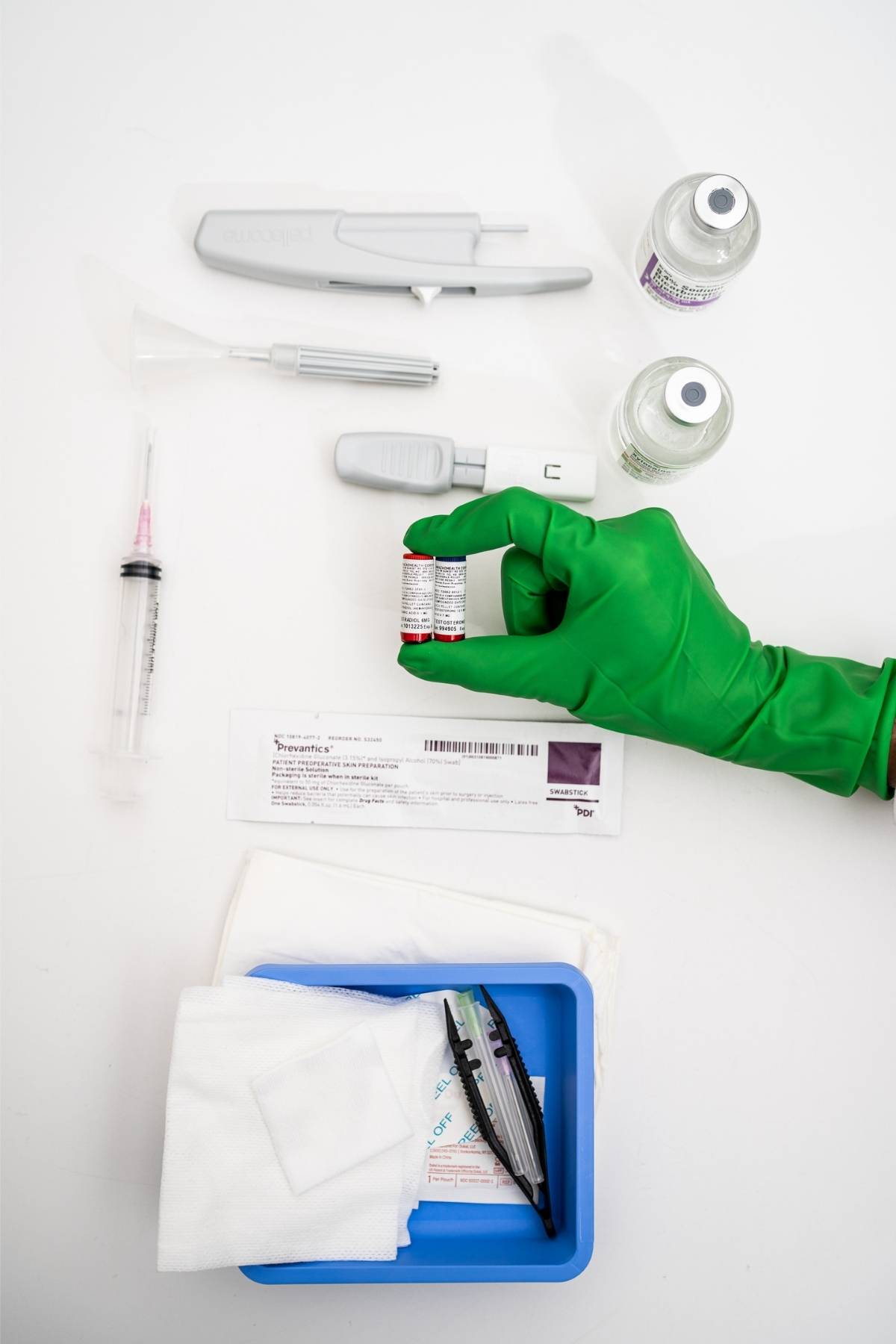
How Pellecome Pellets Work
Pellecome BHRT Hormone pellets are bio-identical hormones. The pellets are made from plant-derived sources that are chemically identical to the hormones your body naturally produces.
Pellets dissolve slowly, offering a continuous, smooth release of hormones instead of the peaks and valleys that can occur with daily pills or creams.
The insertion is a simple, minimally invasive office visit — usually less than 15 minutes.
Benefits of Pellecome hormone pellets
Many patients find pellet therapy especially useful when they want a “set-and-forget” hormone solution that supports balanced hormone levels with fewer appointments:
- Consistent symptom relief from hormone imbalances
- Improved energy, mood, and libido
- Reduced hot flashes, night sweats, and vaginal dryness
- Support for bone health and metabolic balance
- Less frequent dosing (only a few visits per year)
Which Method is Most Effective?
Aside from hormone pellets, which are our most popular option, Transdermal patches, creams and gels are other popular choices. They deliver hormones through the skin, working in sync with your body’s natural rhythm, while also reducing stress on the liver and lowering risks such as blood clots.
Oral capsules and injections give you the flexibility and control over how your hormones are delivered.
We make sure the option you choose is safe for your body. That’s why we monitor your labs, and adjust as needed so you enjoy the benefits with minimal to no risk.
Here’s a quick table to help you compare each delivery option:
Not sure which option is best for you? Our BHRT specialists will guide you toward the safest and most effective choice for your body and lifestyle.
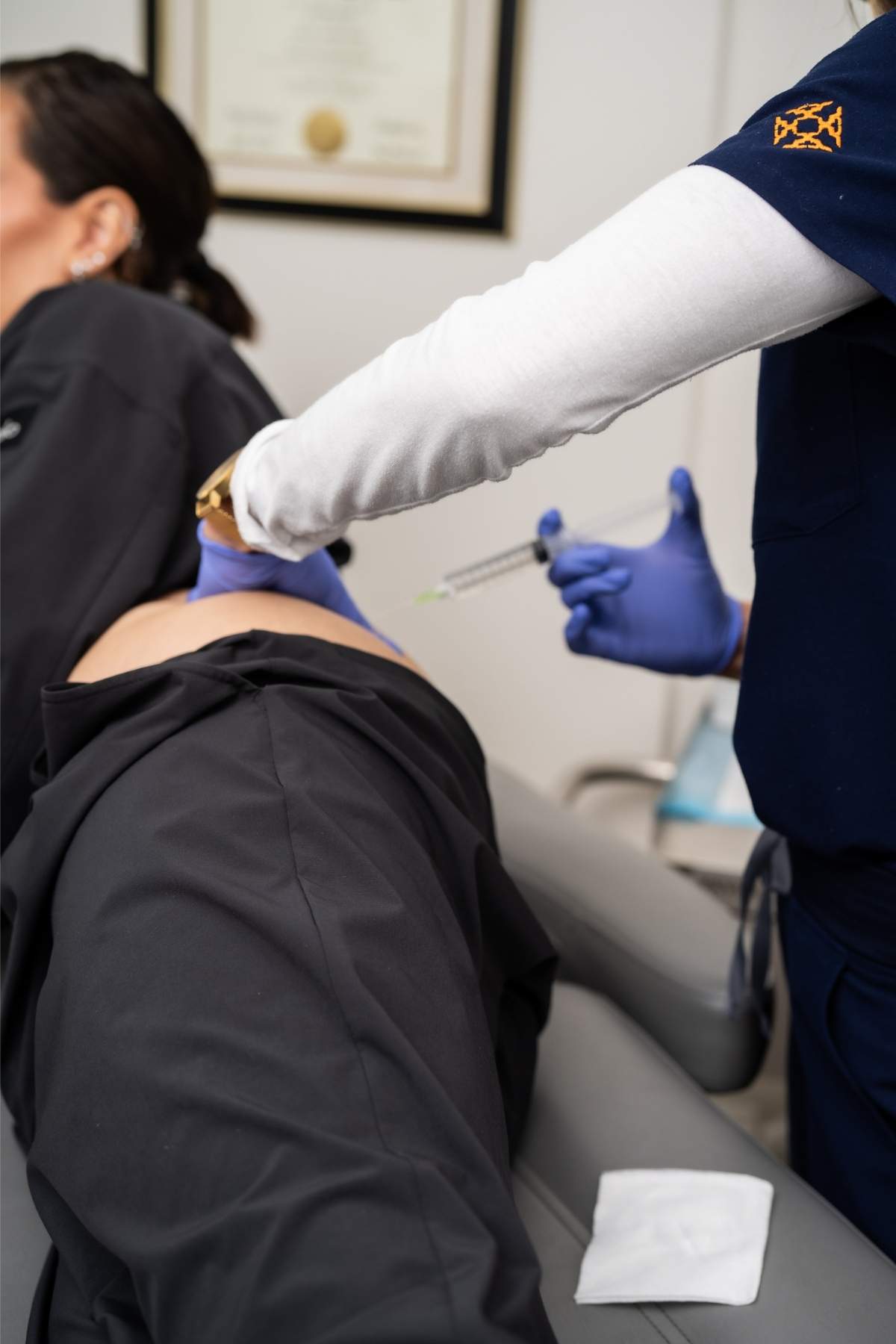
Benefits of BHRT
Low hormone levels can make you feel like a shadow of yourself… tired, unfocused, and less confident. BHRT helps you turn that around and feel in control again.
Benefits of Bioidentical Hormone Replacement for Women
- Menopause symptoms like hot flashes, night sweats, and dryness often improve within a few months of HRT, so you can finally rest well and feel comfortable.
- By restoring estrogen, BHRT improves vaginal health, which makes intimacy enjoyable.
- Estrogen-based BHRT helps improve bone health, prevent osteoporosis, and reduce fracture risk by 30-50%, helping you stay strong and active.
- Balanced hormones support healthy weight, skin, and hair, making you feel confident and comfortable in your own skin.
- BHRT lowers depression and anxiety, and improves mood, helping you feel calmer.
- Starting BHRT within 10 years of menopause may lower heart disease risk, protecting your health for the long run.
Benefits of Bioidentical Testosterone Replacement Therapy for Men
- TRT helps men gain 1.5 to 3 kg of lean muscle in just 6-12 months, helping them rebuild strength and stamina
- Testosterone aids in reducing body aches, enhancing mood and a sense of overall well being.
- Testosterone therapy improves libido, erectile function, and sexual desire in men, making intimacy enjoyable again.
- Within a few months, many men notice a better mood and mental clarity. It feels like having your mental edge back.
- Improves bone density and supports heart health, helping you stay active and resilient for years to come.
Expected Results and Timeline
While everyone responds differently to BHRT, here’s what most people experience:
- Week 1: It feels the same as your first cup of coffee. You’ll feel instant improvements in mood and energy levels.
- Week 2: Energy becomes steadier, mental clarity sharpens, and physical symptoms begin to ease.
- Week 3: Symptoms like hot flashes, fatigue, and brain fog become less intense. Many people notice better muscle tone and emotional balance.
- Week 6: You may notice your energy feels consistent, your mood more balanced, and your thinking sharper.
- 3-6 Months and beyond: At this stage, you may notice the full results, including more energy, emotional balance, stronger bones, glowing skin, and a healthier sex life.
BHRT isn’t an overnight fix. Your body needs time to adjust and heal. We monitor your progress and adjust treatment to maintain optimal results.
Don’t just take our word for it. Read how Mary balanced her weight and restored her vitality with our personalized bioidentical hormone therapy.
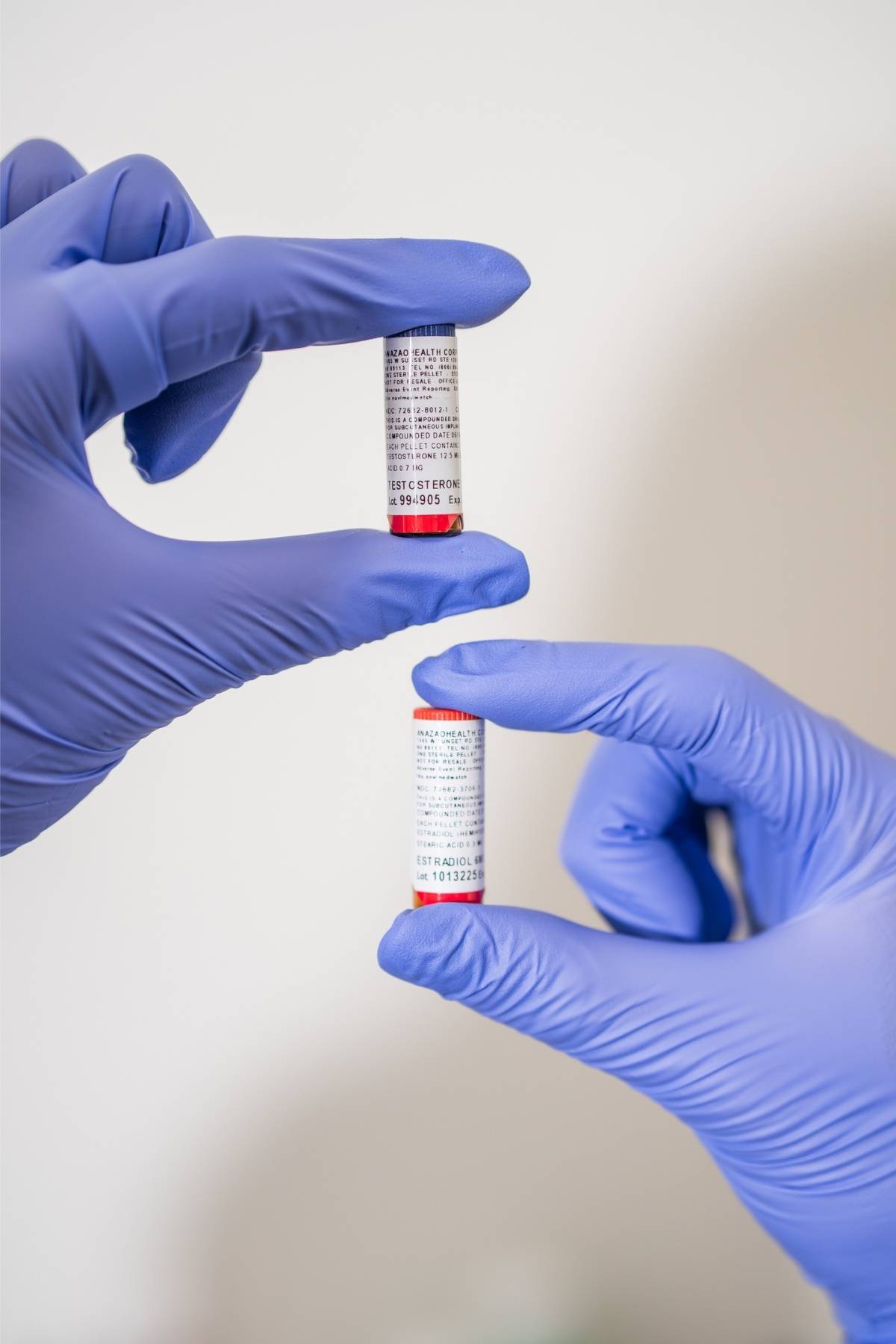
Why Choose Our Los Gatos BHRT Program?
At YNC, we take a science-backed, functional medicine approach to your care. Here’s why patients across the Bay Area trust us with their hormone health:
Patient-First Care
We put you and your health first. Rather than rushing through a 10-minute visit, our doctors take the time to listen and understand your medical history, lifestyle, and daily habits.
We combine advanced health & wellness testing with cutting-edge, evidence-based care, helping you restore balance, energy, and confidence in your body.
Comprehensive Testing
Your genetics, health history, and lifestyle all affect how your body responds to hormones. That’s why we go beyond symptoms to evaluate your unique needs with advanced testing, such as:
- Male and female sex hormones (estrogen, progesterone, testosterone, DHEA)
- Heart health markers and genetic risk factors
- Bone health (vitamin D, calcium) for osteoporosis
- Stress hormones like cortisol, epinephrine and norepinephrine.
- Thyroid hormones (T3, T4, TSH)
- Blood sugar balance (insulin, fasting glucose, Hb1Ac)
- Neurotransmitters that influence mood and calmness
- Sleep hormones like melatonin
- Nutrients (vitamin D, magnesium, B12, etc.)
- Cardiovascular markers (CRP, hs-CRP)
- Cancer screening
This thorough approach helps us rule out other causes, figure out what your body needs, and give you answers you can trust.
Schedule Your Comprehensive Hormone Panel
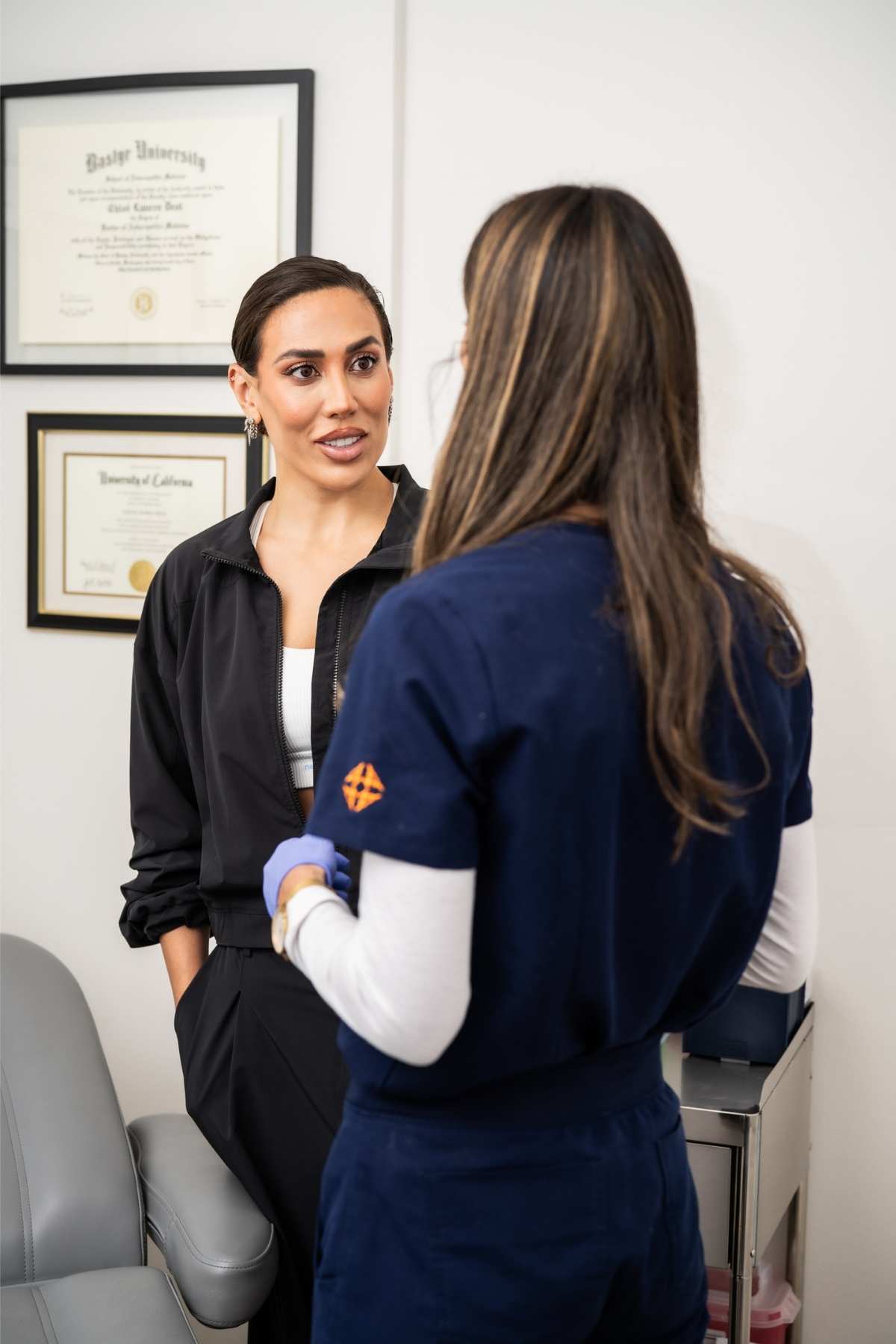
Personalized Treatment Plans
No two treatment plans are alike. Your lab results and health history help us to create a BHRT plan tailored to support your long-term goals
Your treatment may include pellets, creams, gels, or injections. We can improve your results with IV nutrient therapy, NAD+ therapy, and other advanced wellness options to boost energy, mental clarity, and overall vitality.
Advanced Safety Protocols
Your safety is our top priority. We take every precaution, including regular follow-ups and lab checks, to monitor your hormone levels and adjust your therapy as needed.
To make your treatment even safer, we include genetic screening to assess your risk factors, so your plan is safe not just for now, but for the long run.
Local Roots, Trusted Expertise
We’re proud to call Los Gatos home. Led by Dr. Renee Young, a licenced naturopathic doctor with 20 years of experience, our clinic has become a trusted part of the community.
Patients from Los Gatos, Saratoga, Campbell, and across the Bay Area visit us for safe, advanced hormone optimization and life-changing results.
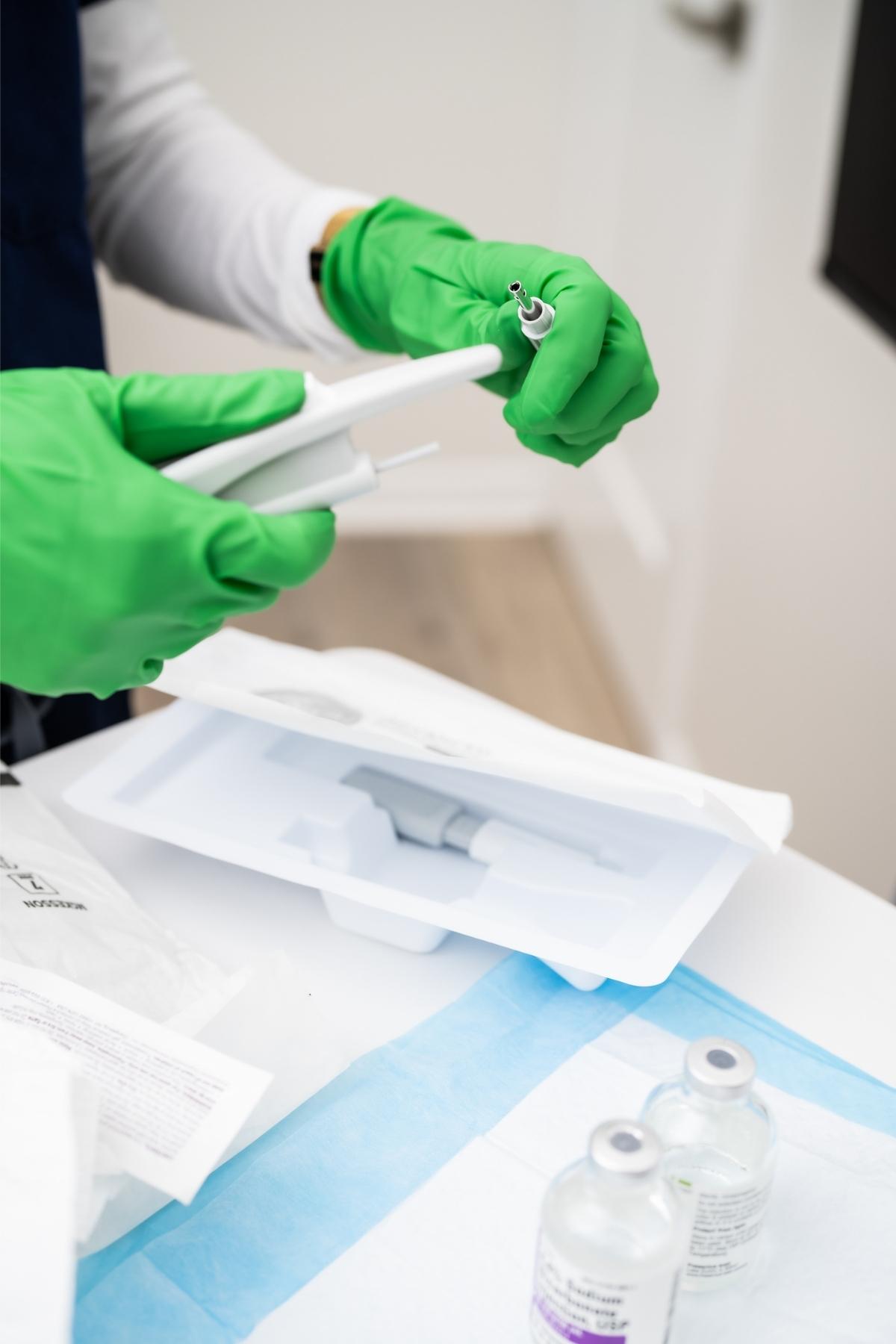
Patient Success Stories
I’ve been seeing Dr. Renee Young at Young Wellness for years, and she is truly the best. From wellness infusions to bioidentical hormones to food and genetic testing, she is the most thorough and thoughtful doctor I’ve ever worked with. She is brilliant, always up to date on the latest research, and takes the time to really listen and care.
As a cancer survivor, I can honestly say Dr. Young does more for me in terms of diagnostics and prevention than my oncologist. Her proactive, holistic approach gives me peace of mind and has been life-changing for my health. She’s not only cared for me, but also for my husband and my 10-year-old son and I recommend her to all of my friends and family.
If you’re looking for a doctor who combines deep medical knowledge with compassion and personalized care, I can’t recommend Dr. Young highly enough.
Molly B., CA.
Ready to Feel Like Yourself Again?
Hormone imbalances don’t have to define your life. At YNC, we work with you one-on-one to understand your unique needs and design a plan to restore hormonal balance, so you can feel in control of your health again.
Restore your balance, vitality, and confidence. Schedule your consultation today or contact us at 408-761-6781.
